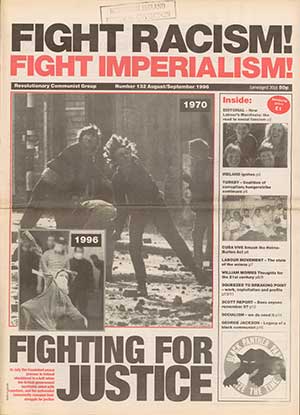DIVIDED SOCIETY
Published in Issue 1 (January/February 2018), News, Volume 26Linen Hall Library to launch major new digital archive
The Linen Hall Library is the oldest library in Belfast and the last subscribing library in Ireland. Since 1968, the Linen Hall has sought to collect all printed material relating to the conflict in Northern Ireland. The library has since become the repository for a vast amount of material relating to the subject and to the subsequent Peace Process.
Over the years, the library has gained a reputation as a ‘neutral space’. Within it, the library’s Northern Ireland Political Collection has become a place where any opinion can be found and consulted. The collection consists of books, pamphlets, leaflets, posters, manifestos, press releases, newspapers, objects and journals. It documents the activities and views of all parties to the conflict, from paramilitaries to government to the wider general public. It covers publications by organisations on the margins of the direct political process, as well as by those chiefly concerned with social issues. By documenting the conflict and making the material available, the library plays a vital role in contributing to a better understanding of the ‘Troubles’.

Above: Fight Racism! Fight Imperialism!, the newspaper of the Revolutionary Communist Group, one of several publications by organisations on the margins of the direct political process held in the Linen Hall Library’s Political Collection, a significant section of which will now be digitised. (Linen Hall Library).
The Divided Society project sees a significant section of the collection digitised and made available on-line. This includes hundreds of periodical titles, comprising hundreds of issues and thousands of distinct articles. According to Gavin Carville, project manager:
‘These periodicals were published between 1990 and 1998 in the UK, Ireland and further afield, and documented the issues that affected Northern Ireland during that period. This was an extremely significant period in the history of Northern Ireland, with events such as the Downing Street Agreement, several ceasefires, and the ongoing peace negotiations which culminated in the signing of the Good Friday Agreement.’
Senator George Mitchell was the US special envoy for Northern Ireland and chairman of the peace talks during this period. As part of his introduction to the Divided Society project Mitchell writes:
‘The peace talks were a long and difficult process and this archive provides its users with a sense of the atmosphere of the time, the issues affecting daily life, how they were debated, and the various attempts at a resolution.’
The publications represent a variety of perspectives. Titles include Fortnight, which provided analysis from across the political spectrum on the current affairs and political developments at the time; the Republican prisoner magazine Captive Voice; the Revolutionary Communist Group newspaper Fight Racism! Fight Imperialism!; and the Ulster Volunteer Force’s journal Combat.
The archive also includes hundreds of political posters. These havevital importance, in terms not only of their historical significance but also of their visual impact. Some of these images are iconic to the ‘Troubles’ era and capture how different sections of the community were feeling at that time.
As part of the project, the Linen Hall Library conducted interviews with members of the public,collecting stories and recollections about the conflict. Community groups from throughout Northern Ireland discussed these issues alongside students from schools, colleges and universities.Many of these stories are available to listen to as part of the audio gallery, or to read as transcripts. This revealing oral history archive captures people from all walks of life recounting their memories of difficult, sad and sometimes humorous times.
The resource also includes six downloadable tool kits to assist students and to educate more general users. These focus on the Downing Street Declaration; the ceasefires; President Clinton’s visit; the 1998 referendum; the Good Friday Agreement; and the first day of power-sharing.There is also a video gallery, including news reports from UK and Irish broadcasters concerning some of these key events. Gavin Carville says:
‘Alongside the journals, posters and outreach material, ten essays have been commissioned. Each will focus on a particular theme, so we have Prof. Marianne Elliott talking about sectarianism and Prof. Adrian Guelke focusing on parallels between Northern Ireland and South Africa. The essays work to give the digitised material context, and are exclusive to the site.’
The site will have full text, downloadable content and dependable metadata. It supports research for Irish and UK politics, peace and reconciliation studies, post-conflict studies, terrorism, journalism and more.Divided Society is available for free in the UK and Ireland at www.dividedsociety.org and available via subscription internationally.
















